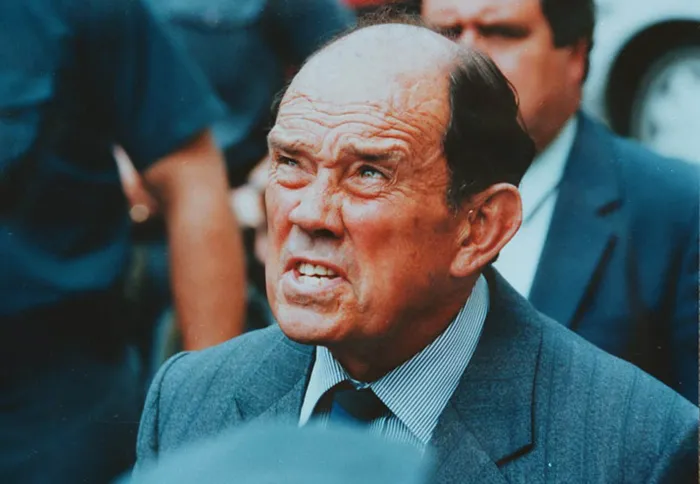Foe of ‘total onslaught’ was master of secrecy

Leon Marshall
JOHANNESBURG: General Magnus Malan, who died at home in Pretoria yesterday aged 81, was the strongman behind the Nationalist throne as apartheid South Africa got increasingly buffeted by internal insurrection, boycotts and an armed onslaught from inside and outside its borders.
He was a firm proponent of the militarisation of society in terms of the total strategy policy the PW Botha administration adopted to counter what it termed the “total onslaught”.
His promotion from chief of the SADF to Minister of Defence marked the beginning of the era in which parliamentary rule gave way to control by the State Security Council. This allowed security functions to be planned and carried out behind a veil of secrecy.
To be a minister, he had to become an MP. It was a role he never seemed comfortable with. He never got accustomed to being questioned and interrupted and ridiculed while speaking. He did not like media briefings and never got on with journalists, a trait he shared with his president.
He was born in 1932 in Pretoria, the son of a professor of biochemistry who became an MP and Speaker of the House of Assembly. But he wanted to become a soldier and ran away from home to try to join the army in 1943.
In 1949, he enrolled for a Bachelor of Commerce degree at the University of Stellenbosch, but he soon abandoned this and went to the University of Pretoria where he obtained a B.Sc Military degree in 1953 and joined the army. His rise was rapid. He attended an officer’s course in the US in the early 1960s and returned to serve as the commanding officer of South West Africa Command, the South African Military Academy and Western Province Command. In 1973, he was appointed chief of the army and three years later, as the Soweto riots erupted and Portuguese control of Mozambique and Angola gave way, as chief of the SADF.
His close relationship with Botha, then minister of defence, prepared the way for the militarist state that took shape soon after Botha took over as prime minister in 1978, elevating himself to executive president a few years later.
Botha made him minister of defence in 1980. He became MP for Modderfontein and was elected to the executive council of the National Party.
He wanted the state to move away from its harsher discriminatory practices, once stating that the overriding consideration was survival of every citizen of the country. He, with Botha’s blessing, tried to move away from racial discrimination in the defence force.
But as the struggle against white minority rule mounted, resort to secrecy and clandestine operations intensified. He presided over the secretive war the SADF was waging across the borders in aid of the anti-communist forces in Angola and Mozambique, and to keep Swapo and the ANC and PAC’s fighters at bay.
Conscription formed the spearhead of the militarisation of society in which the white youth became deeply implicated and indoctrinated.
Malan was among ministers who suggested to Botha in 1989 that he step down as president.
But Malan proved less enthusiastic about the new leaf FW de Klerk wanted to turn when he became president. When a scandal erupted in 1991 involving the Defence Force’s secret funding of the IFP, De Klerk removed him as minister of defence. and put him in charge of water affairs and forestry. He soon retired.
In 1995, he and other former senior military officers were charged with murdering 13 people in the KwaMakhutha massacre in KwaZulu-Natal in 1987 when the home of an ANC activist was attacked. After a long trial, Malan and his fellow-officers were acquitted. President Nelson Mandela came out in public support of the verdict and asked fellow South Africans to support it.
Malan gave evidence to the Truth and Reconciliation Commission about the operation of the Civil Co-operation Bureau, which was responsible for many killings.